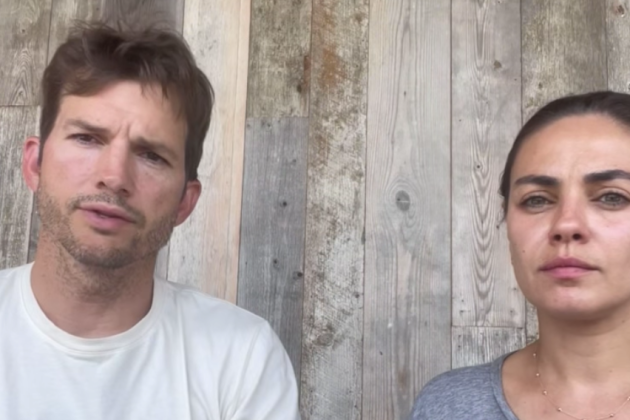Ashton Kutcher and Mila Kunis’ Apology for Danny Masterson Letters Is a Bizarre Document of Contemporary Fame

Ashton Kutcher and Mila Kunis have found themselves in a position that those who’ve followed their Teflon trajectory might never have expected: Apologizing.
The pair’s letters to Judge Charlaine Olmedo, prior to her sentencing of Kutcher and Kunis’ “That ‘70s Show” costar Danny Masterson to 30 years to life on two counts of rape, went viral after they were obtained by independent journalist Tony Ortega. And both the letters and apology video share an uncomfortable tone of supreme self-assurance.
More from Variety
“We support victims. We have done this historically through our work and will continue to do so in the future,” Kunis declares in a tone of grave certitude. While the pair’s presenting mitigating information about a friend in order to potentially reduce his sentence is far from an unprecedented step in the legal system, it does not evoke the sense of “supporting victims.” Similarly, Kunis’ declaration that “the letters were not written to question the legitimacy or the validity of the jury’s ruling” rubs up uncomfortably against both letters’ repeatedly and aggressively pressing the point of Masterson’s opposition to drug use. Kutcher and Kunis seemed, in writing, to walk right up to saying that the claim that Masterson had used date-rape drugs in the two cases for which he was convicted was impossible. Mitigation is one thing; re-litigation is quite another.
The video itself is a bizarre document of contemporary fame; both stars are in just-woke-up-level wrinkled T-shirts, with Kutcher unshaven and bedraggled. If the aim was to present us with a frank dose of Ashton and Mila letting us into their world, it missed the mark. The result seems to bear the self-conscious drama of two people who feel compelled to create their own hostage video. (Or else it’s giving off the vibes of the 2020 “Imagine” video, in which disheveled celebrities tried to create their own reality — though Kutcher and Kunis had been canny enough to take part in a parody of that video episode in the most recent season of “The Boys” in front of that very wall.) Plainly reading from a script as they alternate paragraphs, the pair seem ill at ease, although it’s Kutcher, surprisingly, who comes off as the more adept performer; maybe it’s just that the pair assigned him the easier parts, in which he doesn’t have to directly contravene the conclusions that who read the letter came to. Kunis slips into a pious documentary-narrator register as she lists off all of the ways she and Kutcher respect the system and its judgment; Kutcher ekes out a bit more of a conversational tone, as if he’s just trying to explain how things work to one of his kids. The pair didn’t edit out Kunis leaning forward to turn off the camera, and why should they? From their perspective, her turning it off may indicate an end to the conversation.
Of course, neither expected these letters would ever be read, and are now in a position even more uncomfortable than the one they’d been in throughout the trial, in which the workplace on which they met is now being retroactively analyzed. To this point, the pair have transitioned elegantly from teen idols to sedate adult stardom; the nature of their relationship, reunited years after co-starring on “That ‘70s Show” and after respective other romantic partnerships for both, tends to be presented, and taken, with a sort of cooing sentimentality. Bumps in the road, as when Kutcher’s ex-wife Demi Moore wrote scathingly about his treatment of her in her 2019 memoir, tend to work themselves out, as Kutcher just keeps trucking. (At the time, Kutcher snidely tweeted, “I was about to push the button on a really snarky tweet. Then I saw my son, daughter, and wife and I deleted it.” A Twitter early-adopter, Kutcher’s always been adept: This time, he got to get a swipe in at Moore and be the bigger man, too.)
But the past few years have been a season in which long-established patterns of thought about celebrities are coming in for re-evaluation, and Kutcher and Kunis seemed to have opened themselves up. There’s a wealth of past interviews from the “‘70s Show” heyday, ones that are being examined to find evidence suggesting a climate of uncomfortable sexualization on the set, where Kunis began working as a minor child. If this may at times overreach — one 2002 video, in which the two now-married actors joke about Masterson’s arranging a bet for Kutcher to kiss Kunis, has a light-hearted tone — it seems like the counterweight to what Kutcher and Kunis are trying to do. They’re running up against that most unfortunate fact for contemporary stars: Even a movie star no longer has the power to create their own reality.
Best of Variety
Sign up for Variety’s Newsletter. For the latest news, follow us on Facebook, Twitter, and Instagram.